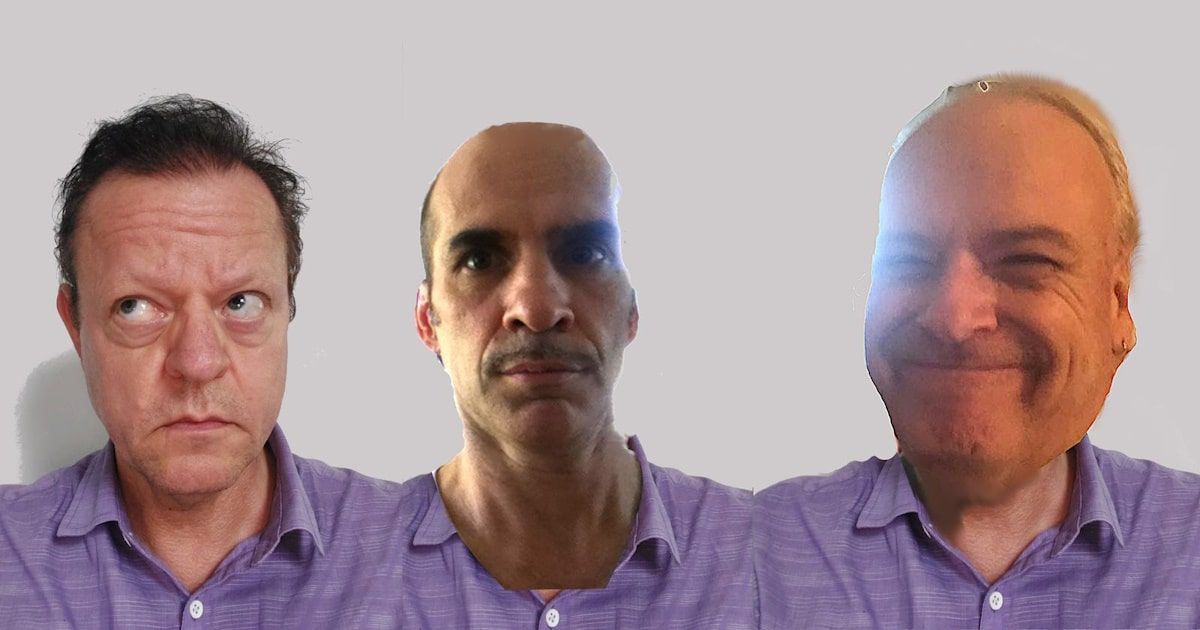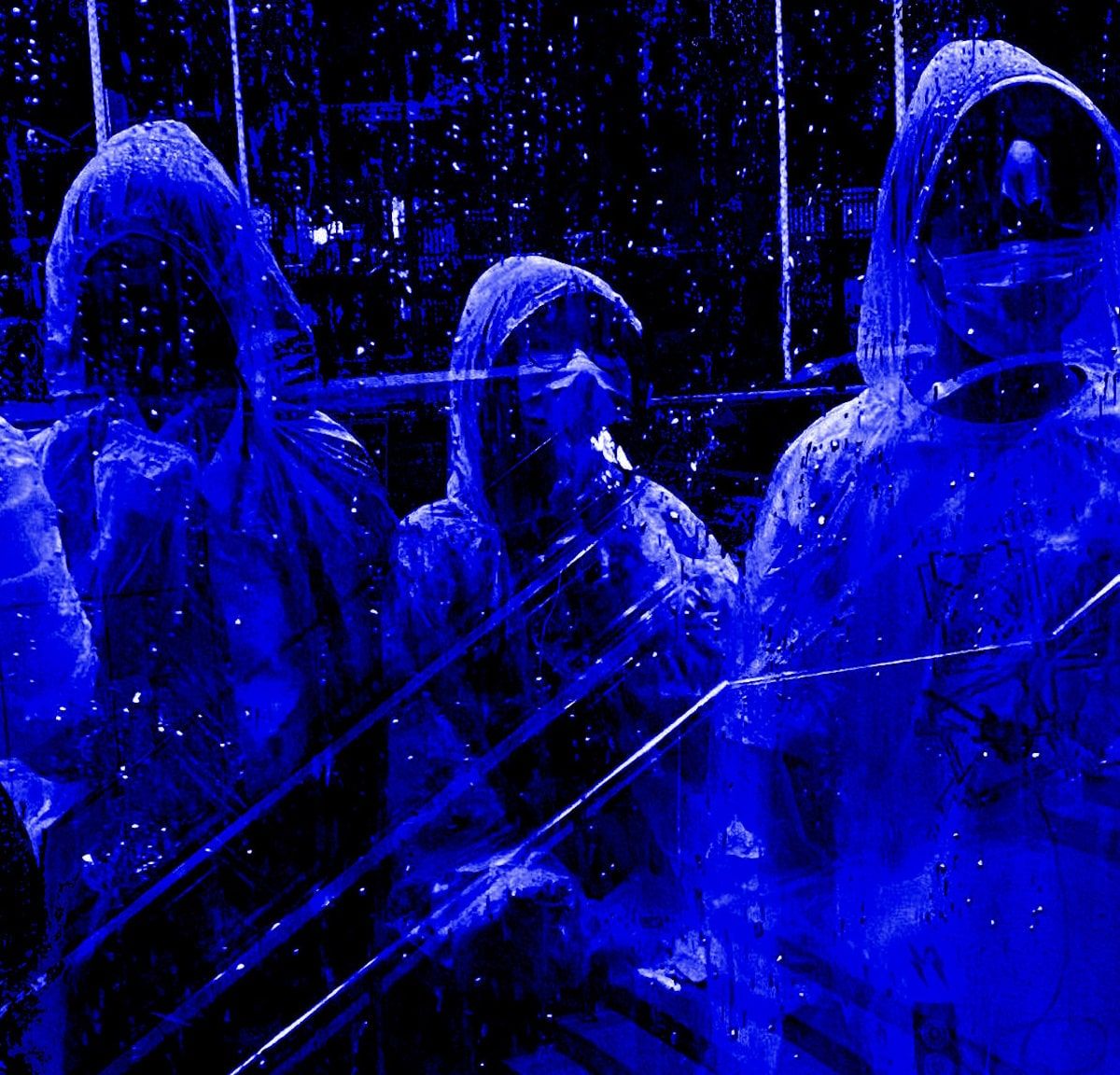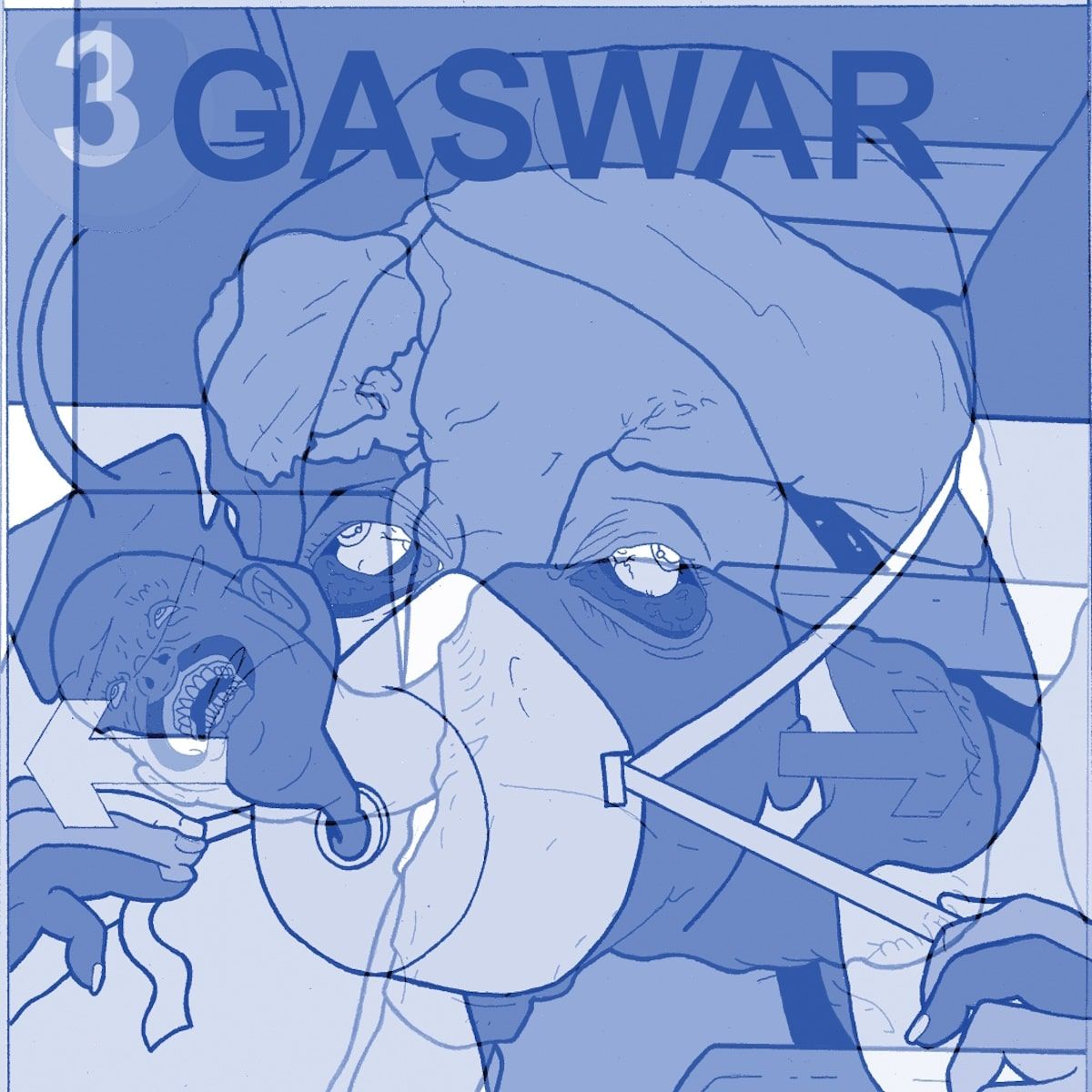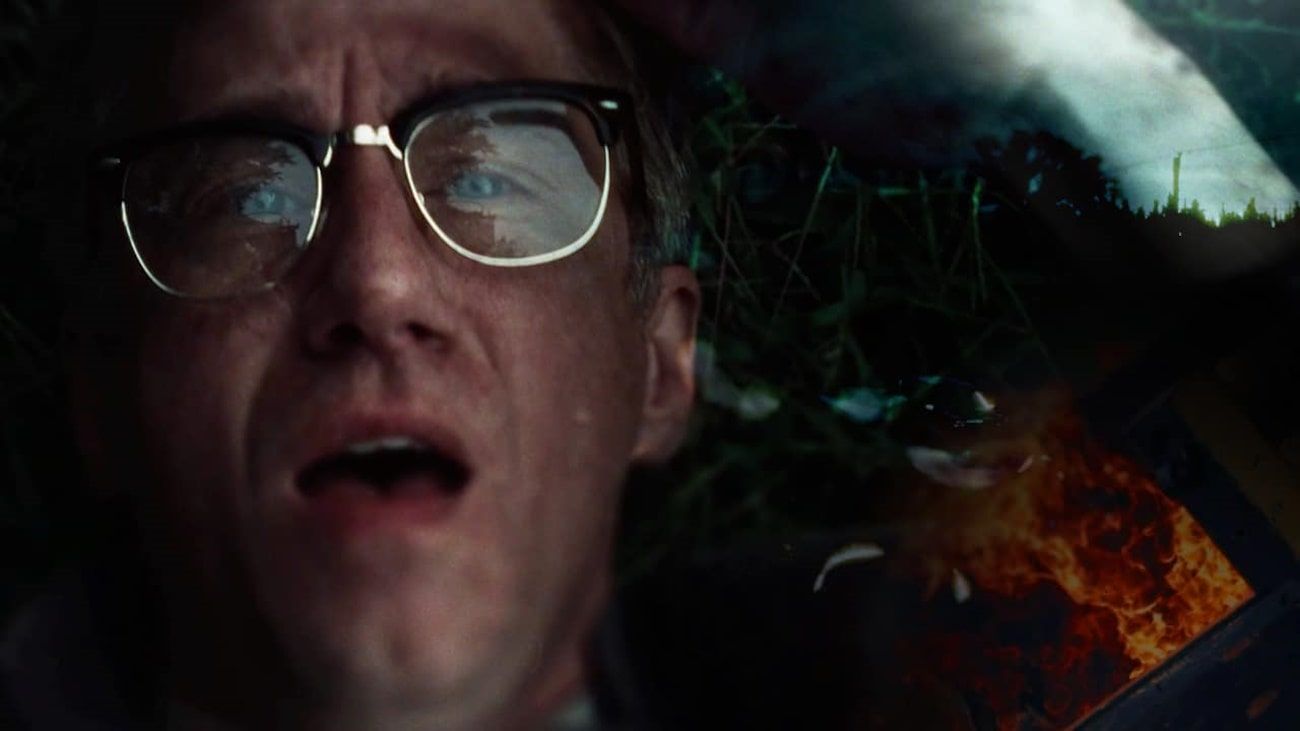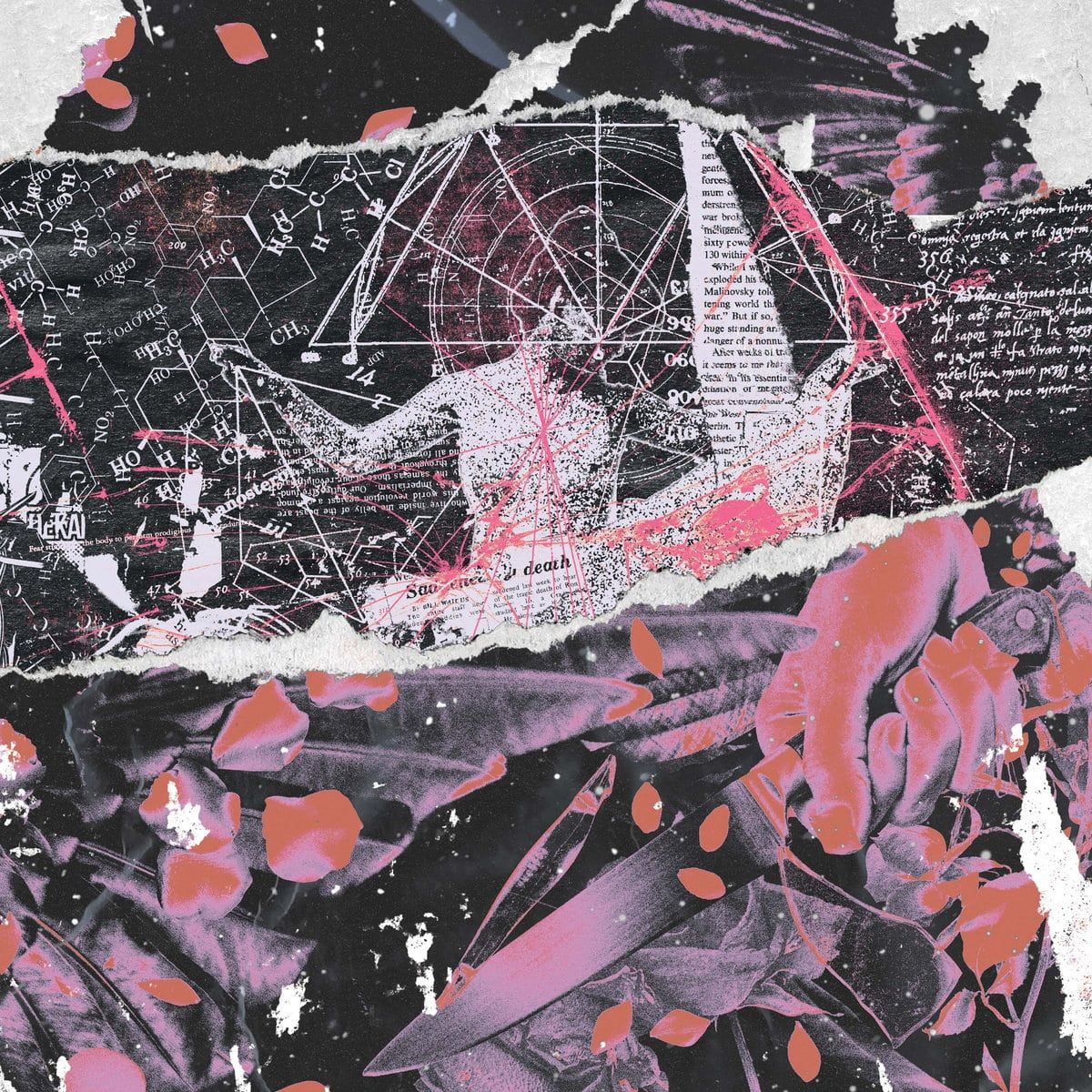Emerging from a convergence of musical titans, GASWAR heralds a new era in the realms of garage-rock, punk-rock, and noise-rock. This trio, born from the union of seasoned artists Kevin Rutmanis, Apollo Liftoff, and Jeff Mooridian, stands at the forefront of an auditory revolution, blending their storied pasts into a sound that’s as enigmatic as it is explosive.
As the curtain rises on GASWAR‘s narrative, we find Kevin Rutmanis, a veteran of influential acts like Cows, Melvins, and Tomahawk, at a pivotal moment.
The story unfolds in the late ’80s or early ’90s in the smoky ambiance of The Uptown Bar in Minneapolis, where Rutmanis, then with Cows, encounters Apollo Liftoff and Jeff Mooridian of Hammerhead. This chance meeting, described by Rutmanis with a hint of predestined inevitability, plants the seeds for what would eventually bloom into GASWAR.
By the late ’90s, with Cows and Hammerhead pausing their sonic onslaughts, Rutmanis, Liftoff, and Mooridian converge in a dimly lit basement, sheltered from Minnesota’s relentless winter. Here, amidst the clatter of instruments and the warmth of camaraderie, GASWAR begins to take shape. Their sessions, a blend of disciplined musicianship and spontaneous combustion, yield a sound that is both an homage to their roots and a daring leap into uncharted territories.
Fast forward two decades, and the long-dormant tracks of GASWAR’s debut album, “Girl Vanishes on way to Jive Club,” resurface. It’s a collection that Rutmanis himself stumbled upon, leading to a resurrection of sorts. The album, stitched together with new vocals, guitar riffs, and Mooridian’s thunderous drums, emerges not just as a time capsule but as a testament to enduring artistic vision and raw, unadulterated passion.
Described by Rutmanis as “tasty, tasteful, and undeniably sexy,” GASWAR’s self-titled debut is an expedition through the wilds of musical expression. From the visceral “Debra Had Never Felt So Dirty in Her Life” to the enigmatic “Father Complex And The Solution Of The Rat Idea,” each track is a mosaic piece in the larger portrait of GASWAR’s ethos.
Jeff Mooridian’s philosophy that “music should start with the blood” serves as the album’s pulsating heart. It’s a record that doesn’t just play; it bleeds, sweats, and breathes, encapsulating the primal, instinctive, and often chaotic nature of creation. This is music that is as much felt in the veins as it is heard in the ears—a fusion of instinct and intellect, crafting a soundscape that is both alien and intimately familiar.
In the following interview, GASWAR delves into the origins of their name, the alchemy of their unique sound, and the journey from those frigid basement rehearsals to the final, polished uproar of their debut. They reflect on their individual and collective musical evolutions, the philosophies that drive their art, and their perspective on the current state of the music scene they helped mold.
As GASWAR’s debut album, set to be released on December 8 via Rock Is Hell Records, stands poised to unleash its ferocious energy, we invite you to join us in exploring the depths of this compelling, enigmatic trio’s musical odyssey.
Can you share the story behind the name ‘Gaswar’ and how it reflects the essence of your music?
Apollo: I remember hearing about the competing gas stations in Moorhead, MN having a “gaswar”, where they kept lowering their fuel prices. I think the winner was 54 cents a gallon. I thought “Gaswar” sounded like the music we were creating, and suggested it as a band name. There were no objections, so it stuck.
Kevin: The name “Gaswar” comes from an old american event that used to happen between gas stations. I think this was a 60s phenomenon. Gas stations across the street from each other would post big lurid signs that screamed “GASWAR!” meaning they were going to lower their prices to a cost less than their competitors. I don’t know that it really reflects an essence of our music beyond that it’s a very mid-west event.
Jeff: Gaswar is basically like calling yer band Star Wars, and yet much cooler, esp cuz it’s not hampered by all that nostalgia. Also, I personally can’t stand the auto industry, so in my mind, “GasWar” represents an immense conflagration, with every car ever made at its core, burning eternally, even as new life starts over somewhere in the universe, hopefully far, far away. I often get this image in my head when I’m drumming. If you see me at a party and I’m smiling, this is partly the reason why.
Given the historical context of your individual bands, how did you navigate blending your distinct styles into Gaswar’s unique sound?
Kevin: We were so familiar with each other’s playing and musical tastes that the process boiled down to this: “here’s an idea. Let’s do this at this point of the song.” “Ok.” and then we worked on it to our liking or threw the idea out.
Jeff: We all wear cloth made of chamois and wound paper. Who knows how it all fits together. Chemistry is weird. It never works the way you expect. I do know that all of us are open to new weird happenings and new entities, especially within music, so I think that’s prob the essential chemical bond. Our tastes were in alignment, to start with though, so there.
Apollo: I don’t think we were thinking about our other bands too much, but our styles that informed those bands naturally came out in this project.
Could you walk us through the creative process in that basement during the Minnesota winter? How did these sessions shape the album?
Apollo: I don’t remember anyone really showing up with any riffs or songs. We would just start playing until we hit on something that everyone wanted to form into a song. The thought wasn’t on making a record so much as having enough material to be able to play a show. The lack of coherent songs didn’t stop us from playing shows, though, not initially. The impetus to record was Kevin’s exit from Minneapolis to New York.
Jeff: If you’re alluding to where we recorded, the creative process was less in play than the physicality/memory part of it. I mean you play off of yourself even when yer playing something you’ve played a 1000 times, but when recording it’s about getting a good take for the most part, at least in the past. Even then, you are playing sort of unhinged to get a good take, but also with something fixed in mind. The esp fun, more creative part all happens before you get there, really. Though a couple songs I think we came with on the spot, so I’ve just contradicted myself.
How did the experience of working on other projects like Vaz and The Melvins influence the final touches you added to Gaswar’s debut album?
Kevin: Past and various experiences with other bands and projects are inevitably going to affect the writing and recording process. We’ve all learned after repeated tries and failures important features like: “don’t be a dick, if it isn’t any fun it’s not going to be very good” and “be open to anything, in writing and in recording/mixing.
No one knows the exact right thing to do, so try to listen rather than control.” and also “listen to the band together in the mix. Hearing your own part isn’t necessarily going to make the song sound better” and most importantly, “Cover mistakes with a sound effect like a spring going BOIOIOIOING rather than doing a second take”!
Jeff: Most of this stuff was written, the main riffs anyway, before we played in either of those bands. But Kevin’s more recent additions, for me anyway, really make the record interesting. I think the more you play, the more influences mix with self-generated ideas and techniques before they emerge again and spill out in a kind of highly original golden funk (I mean, not the genre necessarily)–which I think Kevin is especially good at. I think if you’re really attuned to music, you are constantly working on these amorphous and very personal ideas, even if you haven’t picked up an instrument in a while or even if you hadn’t even really thought about it.
Apollo: The experience of Vaz is why I didn’t get around to recording more vocals when it was initially recorded, as Vaz became my primary focus. Plus, I often drag my feet on writing lyrics anyway. Kevin came along and sewed it all up, I didn’t add anything else except my positive encouragement.
What was the pivotal moment that led to the decision to finally release this album after two decades?
Kevin: The pivotal moment was when I contacted Apollo and Jeff and said, “hey do you care if I wrap up these songs? Let’s put out this record.” And they said, “OK”
Apollo: We finished it.
Jeff: The realization it was a crime not to release.
In terms of musical evolution, how do you feel Gaswar’s sound has progressed or differed from your initial vision back in the 90s?
Jeff: Hard to say, but I can say what we do next will probably be too far out to interpret in the moment.
Apollo: Back then, I did more vocals, and we played various backing tapes. Kevin didn’t do vocals then, he just let his bass sing.
Jeff Mooridian mentioned that music should start with the blood. Can you tell us a bit more on how this philosophy is embodied in your album?
Jeff: It’s just how one starts playing at any single moment. It’s more about instinct and intuitive visualization that you let fly, even while you’re listening to each other. That’s all I really meant. It all starts with something emotional, I think–for me anyway. And that’s how these songs were written.
How did you approach the lyrical content of the album? Are there any overarching themes or stories behind songs like ‘Debra Had Never Felt So Dirty iN HER LIFE’ or ‘Father Complex And The Solution Of The Rat Idea’?
Jeff: I approached it from behind the drums.
Kevin: No overarching themes to speak of… We have similar approaches and attitudes to existence in general. No lyrics would be used that didn’t meet the approval of all three of us.
Apollo: My lyrics came from forming something around song titles that we had already started using. On the Father Complex, I was reading a bunch of random things Kevin had written down for me.
Kevin: “Father complex and the solution of the rat idea” is a beast unto itself, I reckon. It’s improvised. Jeff did the drums this year, not back when we did the original recordings. I recognize some of the lyrics as possibly being mine, but I don’t think that’s me saying them. Maybe those guys will remember. The final mix was by pSeUdO bEaSt who we trust to use whatever fucked up idea pops into his head.
Let’s talk about the album artwork. What does it represent, and how does it correspond with the themes of your songs?
Apollo: The art and the music are both beautifully grotesque.
Kevin: The cover artwork is by Mow Skwoz, who has done cover artwork for hepa.Titus, Lords and Lady Kevin, Dunn with Rutmanis……..her themes and ideas are her own, so they may or may not connect directly to the title and music. To me, there is a connection!
Jeff: It’s articulated well and original, like the music.
What are your thoughts on the current garage-rock, noise-rock, and punk-rock scene in Minneapolis? How do you think it has evolved since your early days?
Apollo: I’m not super familiar with what’s going on in Minneapolis currently, but it seems like it’s gone more underground. Literally, with bands having gone back to playing basements, and not knocking themselves out to play some of the more established clubs. It seems pretty inclusive, and the bands all seem pretty good at supporting each other. But I also think there’s a lack of bands that aren’t afraid to be fucked up train wrecks. Musically speaking, of course.
Jeff: It’s all just music, but honestly, I’m not really that into garage rock, at least as a genre anyway, I like the spirit of it sometimes, and the mummies are still cool, but it’s generally way too nostalgic and formulaic for my taste–you could call the Fall garage-rock, I suppose, for example–but there’s always something way more original in that, so maybe I’m just talking in circles. In general, there hasn’t been too much evolution in any of those genres, I feel, though there are good bands here and there within those scenes.
I think really interesting things happen when people with different influences or backgrounds, maybe from within these scenes or not, get together and play. Like London in the 70s/80s with the Jamaican dub/roots reggae scene mixing with the punk scene, for example. I think there’s some of that stuff happening now in MPLS (as you will see in my response to the last question).
Are there any emerging artists or bands from 2023 that have caught your attention and you would recommend to your fans?
Kevin: Only Jeff still lives in Mpls, so he’ll have to talk about the scene there…Mr. Phylzzz is obviously one of the best bands emerging right now… With no particular offense intended, the bands who label themselves “noise” anymore are a lot different musically and pose-wise from what was going on way back when….back then none of us would’ve used that genre name. There was a varied sound and varied philosophies at play. There wasn’t any macho posturing or projecting a “bad ass” pose….the music spoke for itself. We would’ve rolled our eyes at the tough guy shit. Eccentric and powerful? sure! Manly and tough? not so much. We weren’t sensitive do gooders either. Back then it was acceptable do tell some pretty nasty stories without too much griping that we were endorsing what we said. Maybe there was…we wouldn’t have cared.
Jeff: I really like this band I saw the other night here in MPLS called Intercourse. (I’m not talking about the various crappy metal bands named Intercourse.)
Think power-ish electronics with nerdy, art nerdy, girl and guy singers. The girl esp, was interesting. Nonchalant, charismatic performer. She was super aggressive, but also funny. More chutspah then aggressive, maybe. At one point she took her shirt off, so she’s topless except for a bra, but sort of looked like a normal-ish corporate person you’d see walking around downtown, who had happened to take off her top, randomly. And was screaming in people’s faces.
The music was really good and interesting–sinewy throbs/rhythms throughout each song, with strange-in-the-moment, atonal electronic sounds happening over the top of everything. There was another performer that night, a dude from Iowa, that did some straight-up electronic riffage that was really good too–wish I could remember the name of his project. There seems to be an art damaged (sometimes power-) electronic scene developing around here, in MPLS, that I’m finding really interesting, generally.
Markus Lunkenmeyer, who used to play in Skoal Kodiak and Quad Muth, and now plays in a solo, damaged-junk-electronic project Mar Harbine is a huge influence on that MPLS scene right now. Highly suggest Mar Harbine, as well. I also like French jungle-metal, like Whourkr, a lot. They aren’t that new, though not sure many know about them either. They’re prob huge over there, lol. Oh, and most of the stuff I see on Dust to Digital, on instagram. Best thing on the internet.
Apollo: I enjoyed seeing a band a couple times from Minneapolis called Shrimp Olympics. I also really liked seeing Model/Actriz when they came through. Their bass player pulled a “Chow”.




